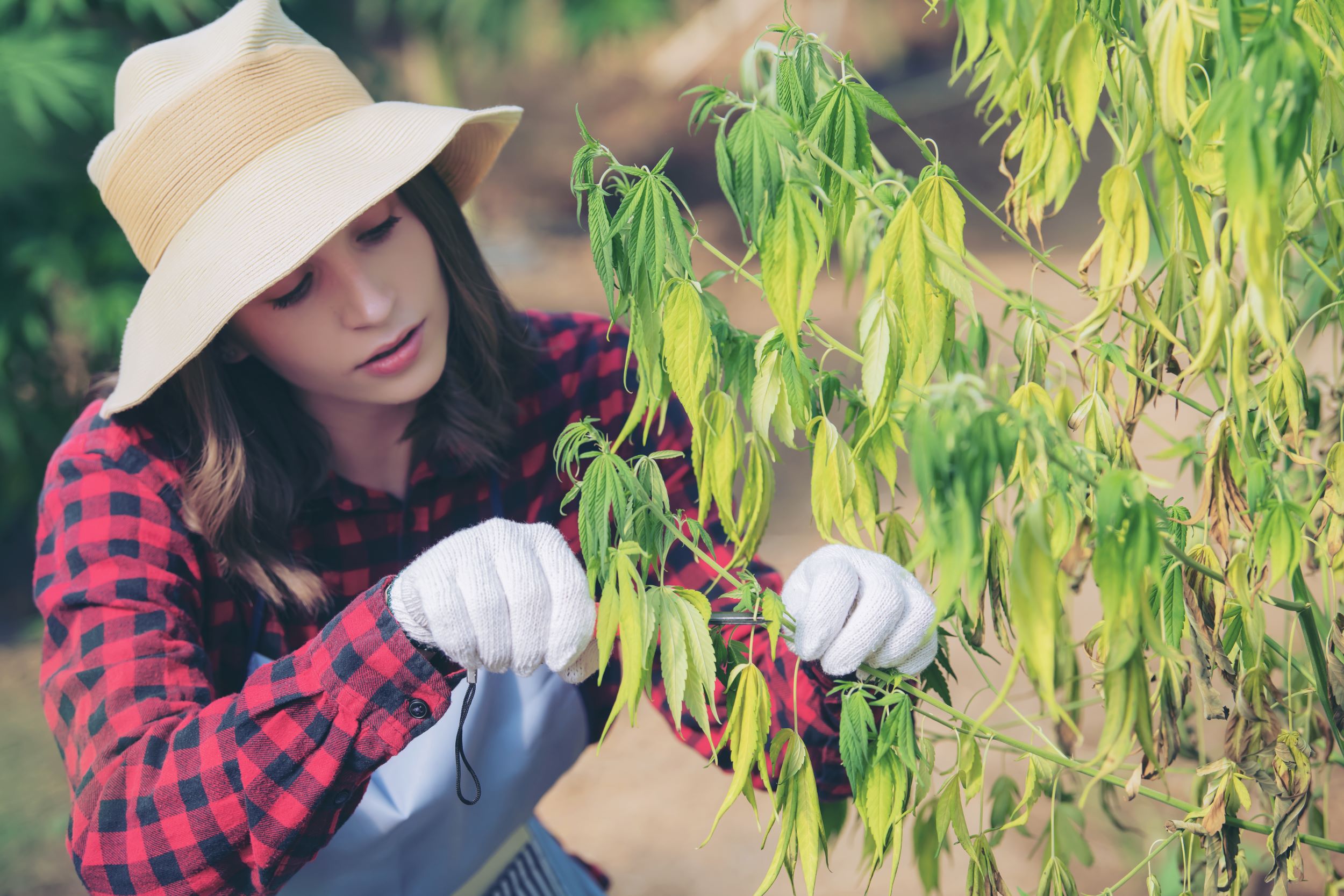Cannabis growers spend most of their plant care careers perfecting their nutrient programs. From potassium teas made with banana peels, to a complete nutrient kit from your favorite organic fertilizer company, fueling your plants with a hand-mixed concoction of amendments helps you learn about the exact needs of your crop (and who doesn’t like to feel like a mad scientist in the greenhouse?).
Breaking Down the Big Three
If you’ve looked at any fertilizer, you’ll know about the big three: Nitrogen (N), Phosphorus (P), and Potassium (K), otherwise recognized together as NPK. These are the nutrients that plants need in the highest concentrations.
Nitrogen: Nitrogen is needed throughout the plant’s growth cycle but gets to shine its benefits the brightest during the veg cycle. This nutrient is relied on for leaf and stem development and is used by the plant to convert amino acids into proteins. These proteins are the building blocks for your plant, so strong protein structures directly lead to strong plant growth. Nitrogen also makes up a large portion of chlorophyll and allows plants to undergo photosynthesis.
Phosphorus: Phosphorus is used for healthy root development and supports nutrient uptake by your plants. It plays an essential role in the reproductive cycle of plants, its formation of cell walls, supporting DNA replication, and helping to form the vascular system for distribution of nutrients and water. Phosphorus helps create large and healthy buds, making it essential for flowering.
Potassium: Potassium is used in many different functions throughout the plant growth cycle. A massive role it plays involves osmoregulation, which is the balance of salt/water concentrations in the plant. By opening and closing the stomata of the plant (pores in the leaves that allow for the exchange of CO2, H20, and O2) Potassium maintains the flow of essential components and inputs.
As well as regulating resources, Potassium also triggers the production of ATP. ATP is a nucleotide that converts the sugar produced through photosynthesis into glucose. Glucose is a form of energy that can be stored in the plant and is used throughout your plant’s life cycle. Potassium is largely responsible for producing better-tasting produce.
Going Beyond NPK
Though NPK are primary nutrients that plants can’t survive without, there are essential secondary nutrients and trace nutrients that cannabis relies on for balanced growth and development.
Calcium: Calcium is necessary for developing stronger and more rigid cell walls, supporting more resilient plants. It can also be used to balance the salt content in soil, and improves water absorption at the root.
Magnesium: Magnesium works together with Nitrogen to form the chlorophyll molecule and is essential for photosynthesis. Magnesium also works to mobilize phosphorus, supporting its role in forming the vascular system. This means that it also supports the distribution and development of sugars throughout the plant.
Sulfur: Sulfur is necessary for nitrogen metabolism, enzyme activity, and protein and oil synthesis. Sulphur is a main component of some amino acids, and is considered essential to protein synthesis and enzyme formation. It also helps with nitrogen metabolization, and is crucial to the formation of chlorophyll molecules. Sulfur can also assist with a plant’s stress management, allowing for a more resilient plant. Most sulfur is naturally within organic matter within the soil, but not always accessible to plants. Though it’s only required in small quantities, sulfur is not mobile in the plant, so a continuous supply is needed.
Iron: Iron can be a tricky nutrient. While it is essential for plant health, too much can be toxic. Iron is essential for the formation of chlorophyll. Iron is typically found within decomposing plant matter. Adding in compost can help to add iron back into your soil.
Boron, Chlorine, Copper, Manganese, Molybdenum, and Zinc, are trace nutrients that cannabis needs in smaller amounts, but they still perform essential functions for healthier plants and a heartier crop.
Refuel Your Soil with Secondary Nutrients
Secondary and trace nutrients are so important in healthy cannabis development. So, what can you do when your plants are struggling with secondary nutrient deficiencies? Your first instinct is probably to replenish your soil’s supply of these inputs, which is a great first step in treating nutrient deficiencies! Applying Activated Compost to your soil is an easy way to refuel your soil with macro and micronutrients for healthier growth. Activated is also rich in organic matter, improving moisture retention and preventing nutrient leaching when you apply other fertilizers.
Another solution is to try supporting your soil by adding diverse microbiology. In some cases, your soil is rich in minerals that your plants need, but there aren’t enough diverse microbes to make those inputs available to your plants. If you already added nutrients to your plants, but aren’t seeing an improvement, your soil might be microbially deficient, rather than nutrient deficient. Using a liquid biological, such as BIOACTIVE LiquiLife™, can improve nutrient availability and uptake, allowing you to get more out of your soil, without needing to add nutrients.


